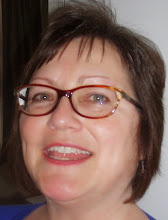London’s
‘Early Houses’
As pubs extend their opening-hours in
preparation for this summer’s many major sporting events, it seemed like a good
time to write about a phenomenon I knew nothing about until a recent visit to
Smithfield Market. London’s ‘early houses’, as they were known, hark back to a
time when early-morning drinking was the norm.
Historically, pubs have always played an important part in the lives of working men and so-called ‘early houses’ were part of this tradition, often located close to docks or other places where people worked in shifts, such as traditional wholesale markets. As beer historian Martyn Cornell explains: “Market business was often conducted in the pub. You’d go have a look at someone’s cattle or sheep, and then go into the pub and strike the deal with a drink. It was almost a commercial necessity to keep these places open, so market business could be carried out.”
Historic Smithfield Market, where trading has gone on for over 800 years (though the buildings are
mainly Victorian), is in the process of being demolished. All businesses trading there will have been relocated to Dagenham by 2028 with many of the structures repurposed to create a new home for the Museum of London. In its heyday, the area around the market contained at least half a dozen early houses, but these have gradually disappeared. The Cock Tavern shut in 2013 and The Newmarket went in 2006, leaving just The Hope in Cowcross St and the Fox and Anchor in Charterhouse St.The third remaining London early house is the bustling Market Porter*, near Borough Market. It opens
Early houses actually came about due to a quirk in Britain’s alcohol licensing laws. Historically, all pubs would serve from first light, before this was stopped in the first world war because it was seen to hamper the war effort . However, an exception was made for market pubs as it was felt they were essential in keeping vital trade flowing.
*Porter, a dark, malty-flavoured beer first brewed in the 18th century was so called because it was drunk by porters, the men who would fetch and carry around the streets of London. They would sit down outside a pub, put their load down, and order a quart to keep them going!
References:
https://www.atlasobscura.com/articles/londons-pubs-open-mornings-history (Feb 2018)
https://www.theguardian.com/cities/2017/jun/21/pints-dawn-last-call-london-market-pubs
(June
2017)






